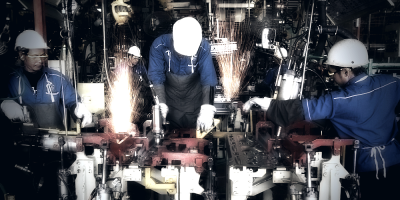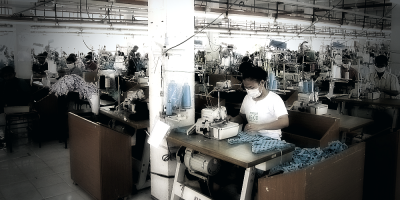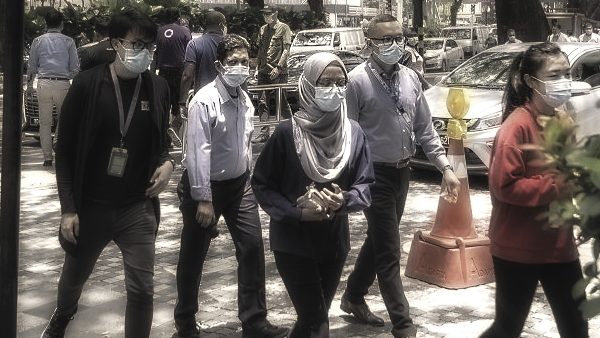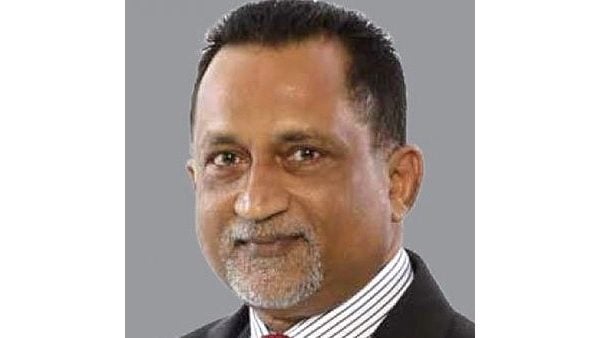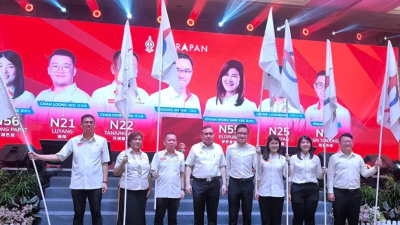
The government has been talking about the progressive wage model for some time now. Although the public are generally aware of the objective of this policy, they remain in the dark over the scheme’s details.
Following the tabling of the White Paper on Progressive Wage Model by Minister of Economy Rafizi Ramli in Dewan Rakyat, at least we now get a clearer picture of the policy’s outline.
The White Paper proposes that the government distribute cash incentives to help businesses adjust the salaries of their employees, up to RM200 for entry-level workers and RM300 for non-entry level workers, for a total of 12 months.
Malaysian citizens earning between RM1,500 and RM4,999 a month are eligible to participate in this scheme, with an estimate of four million beneficiaries.
It is a perennial issue that Malaysians in general are suffering from low wages. Although the country has recorded impressive economic growth for years, and was once one of the Asian Tigers, the economic fruit is sadly not enjoyed by every Malaysian worker.
Those in the low-income group, in particular, have been shut out from the country’s decades-long enviable economic success. In its stead, they have to bear the insurmountable stress from skyrocketing goods prices.
In the past, we used to enjoy relatively cheap commodities, even if we do not earn a lot. But with inflation hitting the roof in the last one or two years, goods prices have far outgrown salary increases, significantly shrinking the ringgit in ordinary citizens’ pockets.
We cannot afford to delay tackling this chronic issue any further.
According to the Employee Wages Statistics (Formal Sector) Report for the first quarter of this year, 73.3% of the country’s 6.54 million formal sector workers earn less than RM5,000 a month.
Wages are indeed too low in Malaysia, and such a low wage level can hardly motivate our workers and keep our best talent within our own shores.
Additionally, almost 56% earn less than RM3,047, while the salaries of 47% of workers fall below the national poverty line, and over 10% take home the RM1,500 minimum monthly wage.
Low wages has been the biggest problem encountered by Malaysian workers. How do we expect someone earning only RM1,500 a month to bear the mounting financial pressure from spiralling goods prices?
According to EPF’s Belanjawanku report, a childless couple will need approximately RM4,590 a month to lead a decent life in Klang Valley, while an urban family earning RM3,000 a month can barely make ends meet.
To address this problem, the government has introduced the minimum wage scheme to protect the well-being of low-income workers, but this alone will not effectively solve their dilemma.
In the meantime, this policy is poised to intensify the cost burden of employers and will not help boost productivity.
To a certain degree, the progressive wage model responds to such a problem.
The difference between the progressive wage model and minimum wage scheme is that the former is pegged to productivity while the latter is not.
Employees are not the only ones to benefit from the progressive wage model, as employers will also benefit from boosted productivity.
The objective of the progressive wage model is to raise the employees’ salaries on improved productivity, which is a move in the right direction. But like all other government policies, execution ability remains the single most important factor.
For a start, the government plans to distribute cash incentives to help businesses adjust the salaries of their employees, but this can only be a short-term solution as it is not sustainable over the long term.
Employers must strive to increase their productivity so that their employees can also benefit from it.
While demanding pay-rises from their employers, the workers must also improve their job efficiency in order to convince their employers they deserve better remunerations.
Wages are indeed too low in Malaysia, and such a low wage level hardly motivates our workers and keeps our best talent within our own shores.
While the progressive wage model is not the perfect solution to the country’s low wage problem, for a start, the policy should nevertheless be encouraged and commended.
ADVERTISEMENT
ADVERTISEMENT






